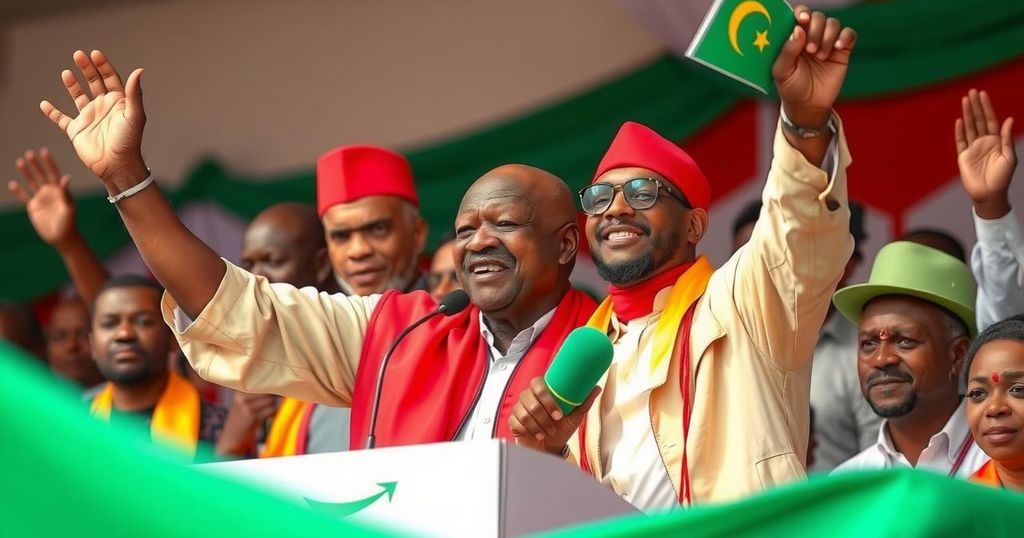World news
2024 ELECTIONS, AFRICA, AHMED BARTCHIRET, ASIA, BOKO HARAM, BURKINA FASO, CHAD, CHINA, COMMISSION, DEBY, ELECTIONS, EUROPE, FRANCE, GOVERNANCE, GOVERNMENT, MAHA, MAHAMAT DEBY, MAHAMAT IDRISS DEBY, MALI, NATIONAL ASSEMBLY, PARLIAMENTARY SEATS, PATRIOTIC SALVATION MOVEMENT, VOTER TURNOUT
Marcus Chen
0 Comments
Chad’s Ruling Party Claims Majority Amid Boycotted Elections
In Chad’s recent parliamentary election, the ruling Patriotic Salvation Movement, led by President Mahamat Idriss Deby, secured 124 of 188 seats, despite widespread opposition boycotts. Observers noted a participation rate of 51.56%, leading to questions about electoral legitimacy. This election marked the first in over a decade and was portrayed as a step towards democratization amidst ongoing security concerns and political instability.
Chad’s ruling party, the Patriotic Salvation Movement led by President Mahamat Idriss Deby, has reportedly secured a dominant position in the recent parliamentary election, acquiring 124 out of 188 available seats in the National Assembly. This election, held on December 29, marked the first parliamentary contest in over a decade. However, it was predominantly boycotted by major opposition parties, raising questions regarding the legitimacy of the electoral process, which had a participation rate of 51.56 percent, according to the electoral commission.
The Patriotic Salvation Movement presented the election as a milestone towards achieving a transition to democracy after Mahamat Deby assumed power in 2021 following the death of his father, former President Idriss Deby Itno, who had ruled for 30 years. Opposition groups characterized the election as a “charade,” expressing fears of replicating the controversies observed during the last presidential vote, which was deemed untrustworthy by observers.
In addition to the parliamentary races, the election included municipal and regional elections that are critical to decentralizing power across the country. Despite the challenges, including security threats from armed groups such as Boko Haram and the delicate situation surrounding military ties with France, the government maintains that these elections are pivotal for the country’s democratic future. Recent events, including foiled attempts to attack the presidency, underscore the volatile political climate in Chad.
Chad has faced significant political upheaval in recent years, particularly following the death of Idriss Deby Itno, which prompted his son, Mahamat Idriss Deby, to assume power as a military leader. The transition to a civilian government has been fraught with challenges, including widespread insecurity from militant activity and domestic unrest. Opposition parties have been skeptical of the ruling party’s commitment to genuine reforms and electoral integrity, leading to widespread boycotts during crucial elections, further complicating Chad’s pathway to democracy.
The recent parliamentary election in Chad showcases a significant power consolidation by the ruling Patriotic Salvation Movement, this victory amid widespread opposition boycotts raises serious concerns regarding the legitimacy and credibility of the electoral process. The country’s aspiration for a democratic transition remains uncertain, especially in light of growing security challenges and the combination of internal dissent with geopolitical shifts affecting military alliances.
Original Source: www.aljazeera.com




Post Comment